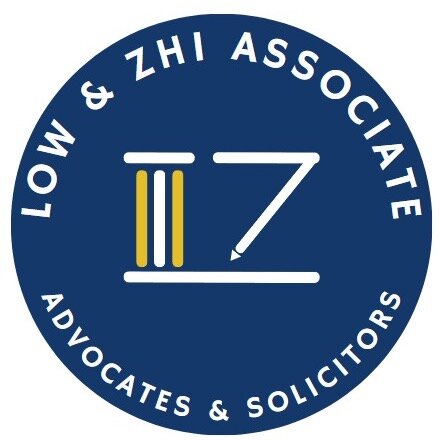Best Probate Lawyers in Kuala Lumpur
Share your needs with us, get contacted by law firms.
Free. Takes 2 min.
List of the best lawyers in Kuala Lumpur, Malaysia
About Probate Law in Kuala Lumpur, Malaysia:
Probate Law in Kuala Lumpur, Malaysia, deals with the legal process of administering the assets of a deceased person. According to this law, the assets of a deceased person cannot be transferred to the beneficiaries without a grant of representation, which is the legal authority to manage the deceased's estate. This legal process ensures that the deceased's debts and taxes are paid and that the remaining assets are distributed according to his or her will or, in absence of a will, according to the law.
Why You May Need a Lawyer:
Probate can be a complex and time-consuming process. Often, individuals may require a lawyer to help navigate the intricacies involved with obtaining a grant of representation, filing necessary documents, dealing with any disputes that may arise, and ensuring the fair and accurate distribution of assets. A lawyer can also assist in cases where there is no will or if the will is contested.
Local Laws Overview:
The primary law concerning probate in Kuala Lumpur is the Probate and Administration Act 1959, updated in 2017. If a deceased person has left a will, an executor named in the will would apply for a Grant of Probate. If there is no will, a next of kin applies for a Letter of Administration. The Distribution Act 1958 sets out the rules for distributing the deceased's estate if there is no will. It's worth noting that in Malaysia, Sharia Law applies to Muslim estate distribution. This makes the procedure considerably different for Muslim residents and further highlights the need for a specialized lawyer.
Frequently Asked Questions:
1. How long does the probate process take in Kuala Lumpur, Malaysia?
The duration of the probate process can vary greatly, typically taking anywhere from several months to over a year, depending on the complexity of the estate, disputes, or any issues that may arise.
2. What happens if there is no will?
If there is no will, the deceased's estate will be distributed according to the Distribution Act 1958, with the spouse, children, and parents being the top priority.
3. Can I administer the estate myself?
Yes, you can, but it is highly recommended that you seek legal advice as the process can be complex and tedious. If not properly conducted, it can also lead to legal disputes.
4. How can I contest a will?
Contesting a will involves complex legal procedures and hence, it's suggested that you should seek advice from a legal professional. In general, to contest a will, one must show valid legal reasons such as fraud, forgery, undue influence, or testamentary incapacity.
5. Do I need to go through probate if the deceased had minimal assets?
Whether or not probate is necessary can depend on the types of assets and their total value. It is best to seek legal advice in this situation as different rules may apply.
Additional Resources:
The Kuala Lumpur Bar Committee Legal Aid Centre provides legal advice and aid to those in need. The High Court in Kuala Lumpur is the authority to which probate cases are submitted. The Malaysian Law Library and the Malaysian Bar websites also offer resources and information related to probate.
Next Steps:
If you require legal assistance in probate matters, it is advisable to engage a seasoned probate lawyer. They will guide you through the initial application for a grant of probate or letter of administration, till the final settlement of the estate according to the deceased's wishes or the law. Inquire at law firms and always ensure any lawyer you consider is properly accredited.
Lawzana helps you find the best lawyers and law firms in Kuala Lumpur through a curated and pre-screened list of qualified legal professionals. Our platform offers rankings and detailed profiles of attorneys and law firms, allowing you to compare based on practice areas, including Probate, experience, and client feedback.
Each profile includes a description of the firm's areas of practice, client reviews, team members and partners, year of establishment, spoken languages, office locations, contact information, social media presence, and any published articles or resources. Most firms on our platform speak English and are experienced in both local and international legal matters.
Get a quote from top-rated law firms in Kuala Lumpur, Malaysia — quickly, securely, and without unnecessary hassle.
Disclaimer:
The information provided on this page is for general informational purposes only and does not constitute legal advice. While we strive to ensure the accuracy and relevance of the content, legal information may change over time, and interpretations of the law can vary. You should always consult with a qualified legal professional for advice specific to your situation.
We disclaim all liability for actions taken or not taken based on the content of this page. If you believe any information is incorrect or outdated, please contact us, and we will review and update it where appropriate.

















